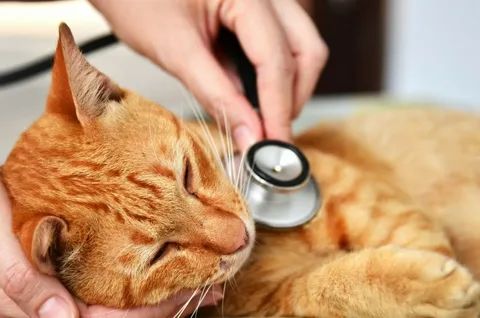Table of Contents
Essential Nutrients for Cats
These days, cats are living longer and healthier than ever before due to advances in nutrition and veterinary care. To maintain their health, cats need a wide variety of essential nutrients, including the following:
Proteins
Proteins are important components of a cat’s diet, as they provide the necessary amino acids required for various bodily functions, such as growth, repair, and maintenance of body tissues. They are obligate carnivores, meaning they primarily need animal-based protein sources to meet their nutritional needs.
Fats
Fats are vital for them, as they provide fatty acids and are a concentrated source of energy. Omega-3 and Omega-6 fatty acids, in particular, play a crucial role in maintaining healthy skin, coat, and brain function. Natural cat food options that include fish, such as salmon or mackerel, are excellent sources of these essential fatty acids.
Vitamins and Minerals
Vitamins A, D, and E are crucial for their overall health, supporting immune function, vision, bone growth, and reproduction. Minerals like calcium, phosphorus, and magnesium contribute to strong bones, teeth, and muscle function. To ensure your cat receives these vital nutrients, opt for healthy cat food options that contain a balanced mix of vitamins and minerals.
Water
Water helps regulate body temperature, aids in digestion, and supports kidney function. To encourage water intake, provide fresh, clean water at all times, and consider investing in a water fountain to pique your cat’s interest.
Dietary Requirements for Cats at Different Life Stages
Every life stage requires different nutritional needs, so it’s important to understand the dietary requirements for kittens, adults, and senior cats.
- Kittens – Kittens have unique dietary needs due to their rapid growth and development. They require more protein, fat, and calories than adult cats. In addition, kittens need to be fed more frequently, typically three to four times per day.
- Adult Cats – They need a maintenance diet that meets their energy and nutrient needs while keeping their weight in check. The best cat food options for adult cats contain high-quality protein sources and moderate amounts of fat, with the appropriate balance of vitamins and minerals.
- Senior Cats – As cats age, their dietary needs may change due to age-related health issues, such as kidney disease, dental problems, or decreased activity levels. Senior cats may require fewer calories but still need a nutrient-rich diet. Consult your veterinarian to determine the ideal diet for your aging feline friend.
Common Cat Food Options
There are a variety of cat food options available that can meet the needs of cats depending on their age, activity level, and health.
Dry Cat Food
Dry cat food, or kibble, is a popular choice among cat owners due to its convenience and affordability. However, it’s essential to choose high-quality dry food, containing premium protein sources and minimal fillers. The downside of dry food is its low moisture content, which may contribute to dehydration and urinary issues in some cats.
Wet Cat Food
Wet cat food, typically canned or pouched, has a higher moisture content than dry food, making it a great option for promoting hydration. It’s crucial to select wet food with high-quality ingredients and avoid those with artificial additives or by-products. Some cats may prefer wet food, while others may not, so it’s essential to find a balance that works for your feline.
Raw or Home-cooked Diets
There are cat owners that opt for raw or home-cooked diets, believing that fresh cat food options are more natural and healthier for their pets. While these diets can have benefits, it’s essential to ensure your cat receives balanced and complete nutrition. This may require the addition of supplements or consulting with a veterinarian or pet nutrition expert to create a well-rounded meal plan.
Importance of Monitoring Weight and Body Condition
Regularly monitoring your cat’s weight and body condition is crucial for maintaining its health. A body condition scoring system can help you identify whether your cat is underweight, overweight, or at an ideal weight. This system evaluates your cat’s muscle mass, fat distribution, and overall body shape to provide an accurate assessment of its condition.
If your cat’s body condition score indicates that they are underweight or overweight, it’s essential to adjust its diet and exercise routine accordingly. Portion control and regular meal times can help manage weight, while encouraging physical activity, such as playtime or interactive toys, can increase their overall activity levels.
The diet you provide for your cat plays a significant role in their overall health and well-being. By understanding the essential nutrients your cat requires and choosing the best cat food options tailored to their life stage and individual needs, you can ensure that your feline friend leads a happy, healthy life. Consult your veterinarian for personalized recommendations and guidance on your cat’s unique nutritional needs.








